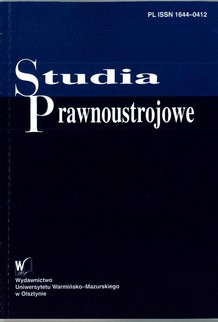Opinie biegłych do spraw ruchu drogowego i techniki samochodowej oraz trudności w ich ocenie. Próba praktycznego i syntetycznego uogólnienia
Opiniones of the road traffic and automotive technology experts and difficulties in assessment. An attempt at a practical and synthetic generalization
Author(s): Kazimierz J. PawelecSubject(s): Criminal Law, Transport / Logistics
Published by: Wydawnictwo Uniwersytetu Warmińsko-Mazurskiego w Olsztynie
Keywords: experts; specialists; basis of evaluations; evidence; evaluations; unclear evaluations; contradictory evaluations; contradicting opinions; errors in opinions; expert evaluations of opinions;
Summary/Abstract: Issues of evaluation of expert’s opinions in road accidents cases have been a source of many difficulties, which can be perceived in practice. It was indisputable, that the experts (in criminal cases) have acknowledged the lack of evidence, which resulted in the impossibility of evaluations. Such issues have not been exposed by them, in such cases, experts presented many versions of their opinions, in many ways usurping the courts right to evaluate certain evidence, which was beyond their competence. On the other hand, procedural authorities were not able to evaluate certain opinions based on their substantiveness, because of the lack of depth of specialist information, regarding certain topics. It has created a situation of “squaring a circle”, an issue without a solution. This publication addresses mentioned issues, evaluating the expert’s opinions from a dogmatic and judiciary perspective, based on the directives of article 201 of the polish criminal procedure code, also in the context of free assessment of evidence, which can – in some cases – result in many confusions. Furthermore, the publication pinpoints the most common mistakes of experts, which influenced criminal procedure cases. I have summed up conclusions in form of de lege ferenda and de lege lata postulates, which aim to the possibility of eliminating the mentioned disharmony, simultaneously postulating that the experts should have the highest possible qualifications.
Journal: Studia Prawnoustrojowe
- Issue Year: 2021
- Issue No: 53
- Page Range: 393-410
- Page Count: 18
- Language: Polish

